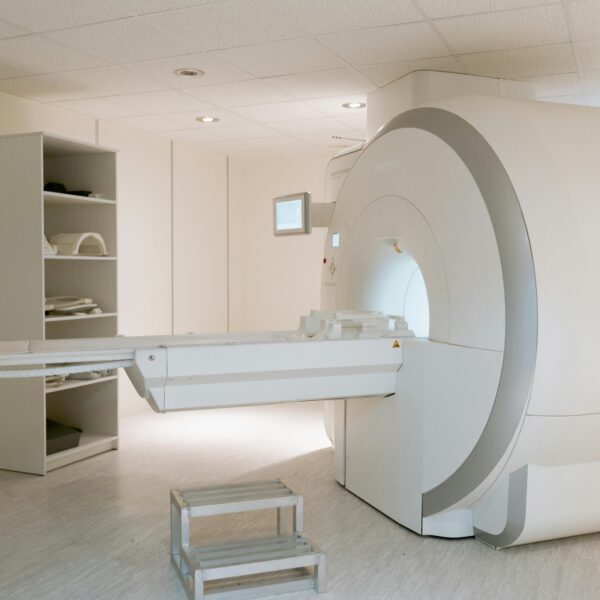“I just wanted all of it to stop,” said intensive care nurse Celia Nieto, in reference to the stress and difficulties of the last year that led her to think suicidal thoughts. She is not alone on this front.
With September being National Suicide Prevention Month, we wanted to take time to highlight one of the more dangerous correlations we see threatening our nurses during this pandemic. While this is a threat to healthcare professionals from all demographics, we want to focus on how this effects registered nurses who identify as female, in light of Women’s Health and Fitness Day coming at the end of September.
It is understandable that suicide can be difficult to talk about, but talking about it more often helps create productive and preventative conversations. Be sure to talk to your coworkers, friends, and family about the difficulties they might be facing, as talking openly can help reduce the likeliness of suicidal actions.
Suicide Rates in Female Healthcare Professionals
Before the pandemic, as of 2015, health care support averaged as the 3rd highest industry for female suicides, with healthcare practitioners and technical professionals as the 6th. Since then, the rates have only increased. In the face of the continuing pandemic, they are the highest we have ever seen them. As of 2020, it has been confirmed that suicide among female nurses is double that of the average female population in the Unites States.
On an average day, nursing can be considered an incredibly stressful job. The factors that cause stress among nurses seem to be relatively universal: lack of staff, highly demanding tasks, too high of expectations and unsupportive and inappropriate attitudes from superiors, and aggressive patients and their families.
With the introduction of the pandemic, the stress factors have only increased. Now, nurses are working extended hours with rotating and inconsistent staff, facing an international, deadly pandemic on the front lines, and not being able to find even the relief of family or friendship as they need to stay isolated for everyone’s help.
Nurses, who often have the dual burden of being the primary care giver at home and at work, are now finding themselves doubling down on both ends- while work is more dangerous than ever, nurses are also trying to take care of their children and families without bringing additional risk to them. Without supporting our nurses and relieving the pressure placed on them in some way, we risk seeing it get worse long before it gets better.
The Risks We See Coming Our Way
Two well-known risk factors for suicide among healthcare workers are work-related stressors and mental health problems. The pandemic has directly effected both of these for our nursing population, giving them more stressors and less time to address them.
While suicide was at an elevated rate for female nurses before COVID-19, nurses at least had some opportunity to destress. With the rise of the pandemic, those opportunities all but disappeared, leaving nurses to experience increased problems with less time to find and practice solutions before they are overwhelmed.
The future we fear seeing is what will happen when our healthcare professionals slow down enough to process everything that has happened. With the horrors they have seen over the last year and a half and all they have experienced as individuals outside of work, do they have the time and energy to handle the grief and stress, or will they risk spiraling into suicidal actions?
How to Tell if You Need Help
Finding warning signs in yourself can be incredibly difficult. Below, we listed several signs that can signal if you need to seek help. If you are unsure about any of these answers, it is always better to speak to a professional than to do nothing.
- Thinking about taking taking your life
- Planning how you might attempt to take your life
- Talking or writing about committing suicide
- Feeling that death is the only true solution to your problems
- Feeling the need to say goodbye
- A need to make post-death arrangements
- Giving away things you own
- An increase in risky behaviors, such as driving drunk
- Buying or hording lethal means, such as weapons or dangerous medications
How to Tell if Another Person Needs Help
Spotting signs of suicide in others can be difficult. It is important to note, before anything else, that it is not our fault for not seeing warning signs in others. The signs vary in every person and, while we try to be supportive and attentive to friends and family, we cannot catch everything others feel, especially if they do not want to talk about it.
To be safe, try to start open conversations with others who you know might be having a hard time as of late. If you are seeing signs of suicidal thoughts or actions in others, check out the suicidal prevention lifeline for tips on how to help.
- Talking about killing themselves
- Talking about feeling hopeless
- Constantly tired
- Distancing themselves from people or activities they usually enjoy
- Increased use of alcohol or drugs
- Increased dangerous behavior
- Giving away prized possessions
- Saying goodbye
- Major changes in mood, such as sudden anger, aggression, or sudden relief/improvement
The signs listed here are not the only possibilities, but there are many groups that you can reach out to for help for yourself and others. If you want to get involved in general suicide prevention awareness efforts, there are many ways to make a difference to help the fight in stopping suicide.
If you are interested in making a difference as a medical profession, be sure to check out our job board, where you can apply directly to fitting opportunities. If you are looking for something different, send us an updated resume and we’ll connect you with a recruiter who can help you find the right position for you.











